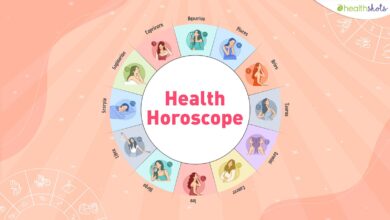
Food Industry Influence Could Cloud the U.S. Dietary Guidelines, a New Report Says
[ad_1]
It is a long-running concern of government watchdogs: Some of the experts responsible for helping to craft the U.S. dietary guidelines also take money from big food and drug companies.
A report published Wednesday by the nonprofit U.S. Right to Know makes those concerns plain. Nine of the 20 experts on the 2025 Dietary Guidelines Advisory Committee have had conflicts of interest in the food, beverage, pharmaceutical or weight loss industries in the last five years, the report found.
Gary Ruskin, the executive director of the nonprofit, said the finding “erodes confidence in the dietary guidelines,” which provide recommendations on how people can eat a healthier diet. The guidelines are widely used by policymakers to set priorities in federal food programs, health care and education — and questions about industry influence could damage the public’s trust that the recommendations are based in science rather than reflecting corporate interests, Mr. Ruskin said.
What the new report found
For the report, Mr. Ruskin and his colleagues scoured publicly available records and identified financial relationships with industry groups and for-profit food and pharmaceutical companies. Those relationships included research funding from infant formula companies, the U.S. Egg Nutrition Center and the California Walnut Commission; paid consulting positions with companies that manufacture weight loss drugs; and advisory board roles at WeightWatchers and the National Dairy Council.
One committee member, for example, received a $240,000 grant from Eli Lilly, one of the top insulin manufacturers, to research better ways for diabetes patients to manage their blood sugar through their diets.
The current committee members have far fewer industry ties than those in years past, said Marion Nestle, a professor emerita of nutrition, food studies and public health at New York University who served on the 1995 committee and is a frequent critic of the guidelines.
The U.S. Department of Agriculture and the Department of Health and Human Services, which jointly revise the dietary guidelines every five years, appointed the current committee members. The members reported their financial disclosures to the agencies, who released a combined list of conflicts for the group — but not for individuals — in June.
Why conflicts of interest are a concern
When committee members receive funding from certain industry groups or organizations, it raises the concern that they may be biased toward them, Dr. Nestle said. “Part of the problem is the influence is unconscious,” she said. “People don’t recognize it,” she added, and will often deny it.
Even if such relationships do not influence the experts, Mr. Ruskin said, they can create the appearance that they do — which can seed doubt about how independent the committee’s recommendations actually are.
Christopher Gardner, a professor of medicine at Stanford University and a current member of the dietary guidelines committee, said it would be difficult to find enough nutrition experts for the 20-member committee who had not taken money from industry groups. Federal funding for nutrition research is limited, he said, and many researchers accept industry grants for research studies so they can keep their jobs in academia. “We have to publish or perish,” Dr. Gardner said.
The Right to Know report identified one major conflict of interest for Dr. Gardner: a research grant from Beyond Meat, which makes plant-based meat alternatives.
Despite that conflict, Dr. Gardner said he believed he could remain objective in his committee duties, which will include reviewing the relationship between what people eat and the risk of various diseases. And, he said, the way the committee evaluates questions of diet and health, including by rigorously reviewing scientific evidence and holding committee discussions and public meetings, would prevent one person’s bias from swaying the committee’s decisions.
“I have full faith that this group is going to very objectively consider all the evidence for every question,” he said.
Even with significant conflicts among members of the 2020 Dietary Guidelines Advisory Committee, Dr. Nestle said they did a “pretty good job” of evaluating the evidence. Yet industry influence can still creep in later in the process, she said, when the U.S.D.A. and the H.H.S. produce the final guidelines based on the committee’s advice. The 2020 guidelines, for example, disregarded the committee’s recommendation for stricter limits on sugar and alcohol. And the 2015 edition omitted the committee’s advice on limiting the consumption of red and processed meats after intense lobbying by the meat industry.
Why the Dietary Guidelines are important
The Dietary Guidelines for Americans influence federal policies and food programs, physician guidance and how nutrition is taught in schools. They are also used for meal planning in schools, the military, prisons and hospitals.
“You can’t overestimate how important they are,” Dr. Nestle said.
The current committee is evaluating the research on a number of issues, including on the health effects of ultraprocessed foods, which include most packaged foods and drinks.
That is a topic Dr. Nestle said she would follow with interest, given her concerns that the foods are harmful to people’s health.
[ad_2]
Source link







